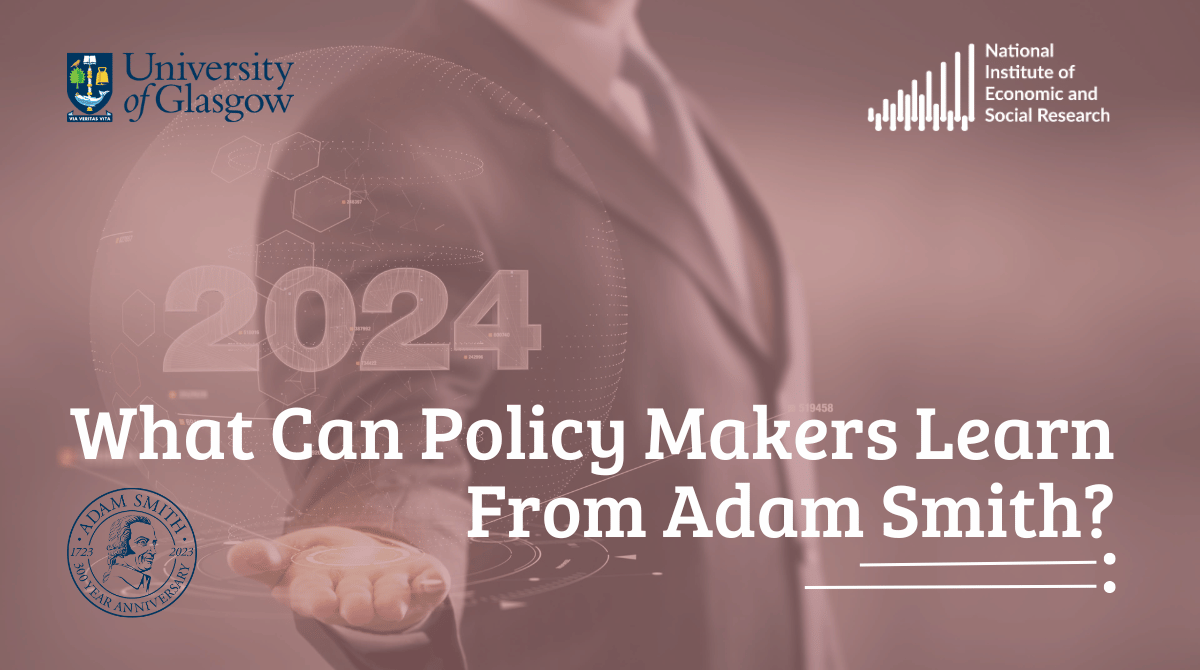Technocracy, Populism and Public Policy
Our Deputy Director for Macroeconomic Modelling and Forecasting Professor Stephen Millard spoke with our Deputy Director for Public Policy Professor Adrian Pabst about the complex phenomenon of populism. Adrian is co-editing the forthcoming Special Issue of the National Institute Economic Review on the Political Economy of Populism.

The first round of the French presidential elections, which saw Marine Le Pen qualify for the run-off against Emmanuel Macron, has put populism once more front and centre of European politics. Coming a week after Viktor Orban’s victory in Hungary, the success of Marine Le Pen and other populists in France suggests that there are long-term structural challenges driving popular support for populist politics, including deep-seated economic factors such as deindustrialisation, low wages and falling living standards.
Can political economy help us to understand populism?
Much of the media have focused either on populist moments like the Brexit vote or on populist leaders such as Donald Trump or Boris Johnson. But this conceals long-term structural patterns, including the decline in voter turnout and the rise in support for populist parties or candidates. Perhaps the most remarkable feature of the first round of the 2022 French presidential contest is that populists across the far right and the revolutionary left received over 50 per cent of the vote: the far right of Le Pen got almost 24 per cent, the far left of Jean-Luc Mélenchon over 20 per cent and the radical right of Eric Zemmour 7 per cent.
In the past, economics tended to equate populists with certain policy choices that repudiate the macroeconomic orthodoxy of fiscal rectitude and tight monetary management in favour of big-state spending and monetary activism. While this captures certain elements of left-wing populism, it does not reflect right-wing populists who favour a small-state, low-tax and radically deregulated economy.
Similarly, political science reduces populism to an anti-pluralist ideology that opposes ‘the people’ to ‘the elites’. This is true of many populist parties who claim to represent popular values against elites that are accused of being unaccountable and out of touch. But like economics, political science emphasises policy and institutions at the expense of the fundamental foundations – deep disparities of wealth linked to asset and income inequality, a lack of decision-making powers and a sense of disconnect from the political and economic system. For example, four out of five voters in the UK think that politicians and business leaders do not understand their lives. A broad political economy perspective helps us to understand the wider economic and social transformations that underpin popular support for populism.
Faced with the populist challenge, should we not put our trust in technocrats who will restore the virtues of meritocracy?
Meritocracy sounds a fine ideal – due deserts based on talent, effort and achievements rather than privileges owing to inherited wealth or social class. But in reality the meritocratic system is not working. A more comprehensive account of populism and its drivers has to start with the recognition of deep-seated grievances that are not just economic and cultural but fundamentally ethical – a sense that standards of fairness have not been upheld because the link between contribution and reward at the heart of the meritocratic system is broken.
As Michael Sandel argued in his 2020 book The Tyranny of Merit, our meritocracy is not simply dysfunctional but in fact contains the seeds of tyranny—the unjust rule of ‘winners’ over ‘losers’ that diminishes the mutual obligations on which a market economy and democracy depend. Contemporary meritocracy not only entrenches division by elevating the success of the ‘deserving wealthy’ into an absolute that makes the rest feel worthless. It also creates hubris among ‘winners’ and generates humiliation among ‘losers’.
Support for populism is based on grievances grounded in the broken link between contribution and reward. As the economists Eric Protzer and Paul Summerville write in their 2021 book Reclaiming Populism, “disenchanted citizens have reason to believe that opportunity is not equal, that economic rewards do not match contributions, and that the much-cherished rules of meritocracy are broken […] (political) leaders have largely met populist grievances with misapprehension and condescension instead of empathy – leaving illiberal actors to fill the vacuum”.
The question is therefore whether politics and policy can address the deep-seated economic and social problems that have created the conditions for populism to thrive in the first place.
So what policies should be considered?
Policymakers have to tackle increasing income inequality and deepening differentials in wealth. One way is by raising the minimum wage to the level of the ‘living wage’ or better the ‘family wage’ – an income on which a working parent can raise their family without having to hold down several jobs or resorting to debt. Another policy avenue would be to raise taxes on assets rather than on labour, e.g. exploring the introduction of a land tax or raising taxes on certain kinds of wealth such as second homes or destabilising speculative practices in the financial sector.
A second set of policies should address the persistent gaps in the labour market, in local and regional capital markets and in the institutional ecology that characterise unbalanced economies such as the UK or the US. Targeted investment to increase the number of STEM graduates and improve technical and vocational skills is a key priority. A jobs guarantee for people aged 18-25 could potentially support the transition from school and university to the labour market, which would include training and a lifelong learning entitlement co-funded by government, business, trade unions and civil society organisations.
Funding needs to be provided on competitive terms for businesses that cannot access the services offered by the City of London or Wall Street, which should extend to the creation of national development banks as well as regional and sectoral banks constrained to lend within specific areas or sectors. Technology trusts and science hubs have to be designed in such a way as to share the fruits of R&D and diffuse the fruits of innovation.
Public policy should also target the people who live in places with particular high levels of economic and social deprivation. Besides investment in education and infrastructure, such communities require direct assistance such as job-protection and job-creation schemes, retraining and upskilling programmes as well as a more comprehensive social safety net that includes income support for those living in destitution, free school meals for their children and better funded adult social care.
But for people and places to be able to help themselves, they need to be given the power and resources to create decent jobs, set up businesses and provide better public services. That requires devolving not only decision-making powers but also spending and taxation powers, e.g., in the case of the UK, business rate retention or a share of income tax revenue. New fiscal frameworks and fiscal decentralisation for regional and local government should be principal priorities for policymakers.



















